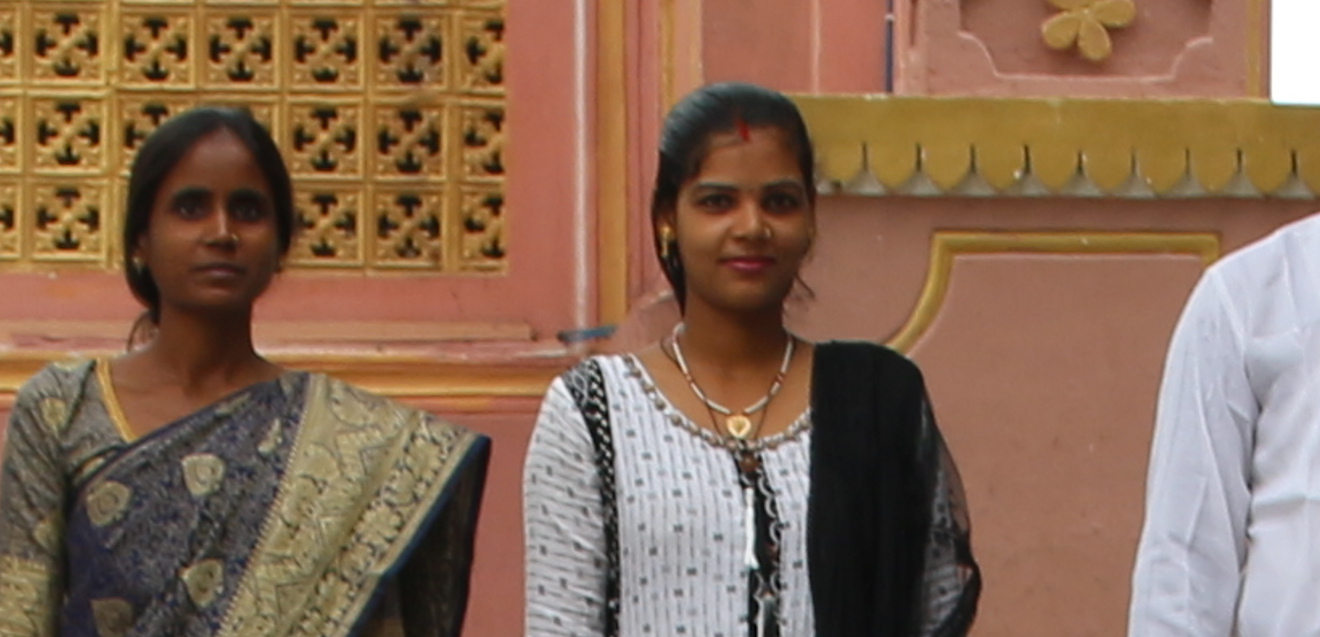From: Rohathas Block, District Rohatas, Bihar
“When I went to survey the community, I noticed that many children were rooting around and collecting rubbish. These were the children of the Dome people, which is a family name that is very common in the Dalit caste. They are known to work with the bodies of the deceased and to keep pigs, for example. These are things that people from higher castes look down on; they don’t like the Dome – the Dalit people. They are very discriminated against. That also shows in that Dalit children are not allowed in schools. Teachers say that parents from other castes will take their children out of the school if Dalit children are in their classes. Officially, however, Dalit children have the right to education under the law.
In this community, I have been working very hard to get Dalit children to go to school. Day after day, I had conversations with 14 Dalit children and their parents to convince them that the children should be in school. It took a long time to get them to trust me and understand the value of learning. However, even after getting them onboard, the issue of discrimination against Dalit children in schools remained.
When I took the children to the school to enrol them, the headmaster would not allow me into the school. We were sent away, which was very demotivating. The teachers were of the opinion that there was no chance of admission for these children in the school. That is when I approached the MV Foundation for help from higher up in the organisation.
The teachers told us some of the requirements for the Dalit children to get enrolled. All the children had to have a school uniform, the right stationery and they had to attend school every day for one month as a trial month. The teachers would decide whether or not to allow the children to attend school after this trial month. Dalit families are very poor, so MV Foundation helped by providing uniforms and stationery. We also literally helped them get to school; we’d collect them from home in the morning, make sure they looked presentable, had their stationery, uniforms and took them to school. We made sure that the children attended their classes for the whole month.
All of these children had never been to school. Their parents and other family members had never received any education either. So when the children started school, their basic knowledge was very low. That is why I started to teach the children some of the basic things that they needed to know before they started to go to school. To teach the children, I gathered all 14 of them in one of the children’s houses. I taught them for a few weeks to give them some basic knowledge. With this knowledge, the teachers allowed them to attend classes.
After a month of good attendance, the teachers allowed the children to come to school. That was good news. But then, after the first few days of school, the children came to me with complaints. They told me that instead of sitting in the classroom and being a normal student like the other children, the teachers were forcing them to clean the toilets in the school. The children were very upset about the way they were being treated. Understandably, they didn’t want to go back to school. The only way we could deal with this terrible situation was to collect the children’s school applications and file a report at the police station. This really scared the teachers. They were afraid that the police were now going to get involved. This made them reconsider their actions and allow the children back to school and back into the classroom.
There were still some other unreasonable conditions for the children to attend school. Normally in school, children are in classes according to their age. But they told us that all these Dalit children – the youngest of whom was about four or five years old and the oldest was 18 – had to start in the class one. With the little ones. But I wanted all these children to be in the class corresponding to their age, like all the other children in the school. After we complained about the poor treatment of these children in the school, the children were allowed to be in the correct class according to their age. Today, all these children attend school regularly.”

